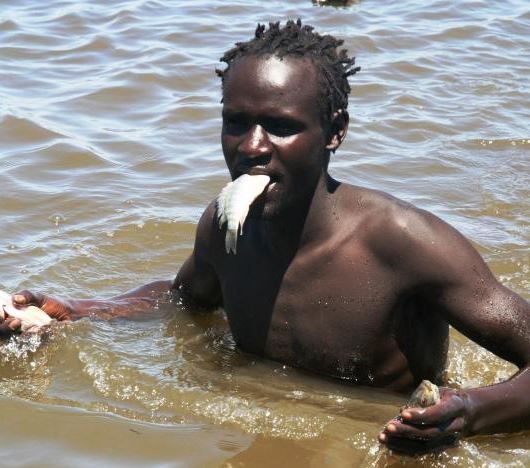×
The Standard e-Paper
Smart Minds Choose Us

It is a cold morning, as a group of half-naked men drag a net along the shores of Lake Naivasha. The nets, which include mosquito-nets, literally sweep anything from a 5kg species of common carp to weeks old fingerlings.
For hours the group wades past bushes of hyacinth weed that is choking the troubled lake, trapping immature fish in the process.